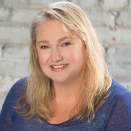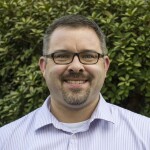This article was initiated and supported by the Scientific Affairs Committee of the American Association of Naturopathic Physicians: Michelle Simon, ND, PhD; Ather Ali, ND, MPH, MHS; Bob Bernhardt, MEd, LLM, PhD; Carlo Calabrese ND, MPH; Michael Cronin, ND; Peter D’Adamo, ND; Bill Walter, ND; and Heather Zwickey, PhD.
This is the final article in a 3-part series encouraging research literacy in the naturopathic profession. In the first article, “The Power of Literacy,” we proposed that the ability to critically appraise research findings improves our clinical work, enhances interprofessional communication and collaboration, and advances naturopathic medicine as a whole. We concluded that article with an invitation to our fellow colleagues to practice and refine their own research literacy on a daily basis. The second article recommended the book How to Read a Paper: The Basics of Evidence-Based Medicine by Trisha Greenhalgh, MD, as a resource for effectively engaging with research literature and highlighted pertinent chapters for naturopathic clinicians. Here, we provide information about additional opportunities for learning or enhancing research skills and encourage you to take advantage of them.
McMaster University’s Evidence-Based Clinical Practice program, Hamilton, Ontario, Canada
Researchers at McMaster University were the first to define evidence-based medicine (EBM) and have remained at the forefront of EBM’s evolution toward evidence-informed practice (EIP). Their world-renowned 1-week intensive summer workshop caters to clinicians from a wide variety of backgrounds (including naturopathic physicians). The focus of this training is to 1) to help clinicians enhance their skills in reading, interpreting, and applying the medical literature to clinical practice and 2) support clinician educators who aim to teach principles of EIP to others. Registration is open for next summer’s workshop (June 8-12, 2015); find more information here.
University of Oxford’s Practice of Evidence-Based Health Care Short Course, England
Interested in honing your skills abroad? The University of Oxford offers a 1-week intensive course introducing foundational concepts and skills of EIP. Participants learn how to turn clinical questions into focused queries for searching the evidence. They also learn critical appraisal techniques in order to assess how clinical research can be applied to practice. This professional development course draws participants from many different healthcare disciplines and is now accepting applications for February 2015. Click to learn more.
National College of Natural Medicine’s Evidence-based Medicine Traveling Short Course
As part of their R25 Educational Training Grant from the National Institutes of Health National Center for Complementary and Alternative Medicine, National College of Natural Medicine (NCNM) hosts a weeklong intensive training for faculty each summer. This training equips clinicians with skills for accessing, interpreting, and critically appraising the literature, as well as implementing EIP strategies in a clinical setting. This year, NCNM research faculty will be taking this course on the road—we hope to a city near you! Courses will run Saturday (9 AM-5 PM) and Sunday (9 AM- 1 PM). Cost for the course is $200 and approved credit for continuing education (10.5 credits, 8.5 general, 2 ethics) is expected for each of these weekends, unless otherwise announced. Scholarships are available upon request. Find more details and registration information here. The schedule for the coming year is listed below, but keep an eye on the website as dates may be subject to change.
- Phoenix, Arizona: January 23-25, 2015
- Seattle, Washington: February 21-22, 2015
- San Francisco, California: February 28-29, 2015
- Vancouver, British Columbia: March 28-29, 2015
- Austin, Texas: April 11-12, 2015
- East coast locations and dates to be announced
Institute for Evidence-Based Health Professions Education: Free Online Course
No money; can’t travel? Check out this fantastic online resource that includes video lectures and text. Frustrated or overwhelmed trying to answer your clinical question by searching the literature? Bookmark Chapter 3 for quick tips on how to make searching PubMed work for you. Need a quick refresher on relative risk or number needed to treat? Bookmark Chapter 8, and the explanation is always at your fingertips. Hone your EIP skills while moving at your own pace; visit the web site and pick and choose the topics most meaningful to you.
Foundations of Evidence Informed Practice: Free Online Course
Investigators at the University of Minnesota have also created a free online resource to help integrative clinicians enhance their research skills. Modules are straightforward and walk users through different aspects of maintaining an EIP: how to distinguish different types of research, understanding research basics such as study validity and statistics, and how to use research to inform clinical practice. Because 2 free courses are better than 1, check out this online training.
The Center for Optimal Integration’s Project to Enhance Research Literacy (PERL)
Deb Hill, MS, at the Center for Optimal Integration (a priority project of the Academic Consortium for Complementary and Alternative Health Care) has compiled a rich online resource of EIP resources for educators who want to develop, evaluate, or enhance their own EIP programs. Anyone looking to build curricula for student or faculty trainings in EIP will find PERL a valuable asset. Check it out here.
In the first article of this series, we invited our naturopathic colleagues to commit to establishing, practicing, and refining research literacy skills on a daily basis. There are many opportunities to support such endeavors; those presented here are just a few. We hope you’re inspired to dig in and find options that will work for you. As you plan your continuing education for the coming years, consider devoting some of your hours to honing your research literacy skills. Grab a colleague and join us at one of the seminars—we look forward to seeing you there!








